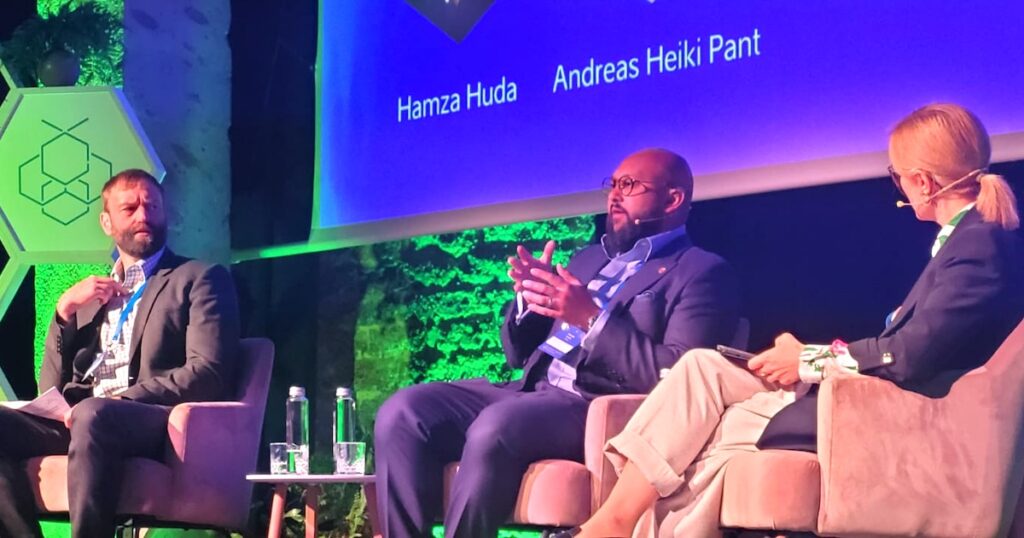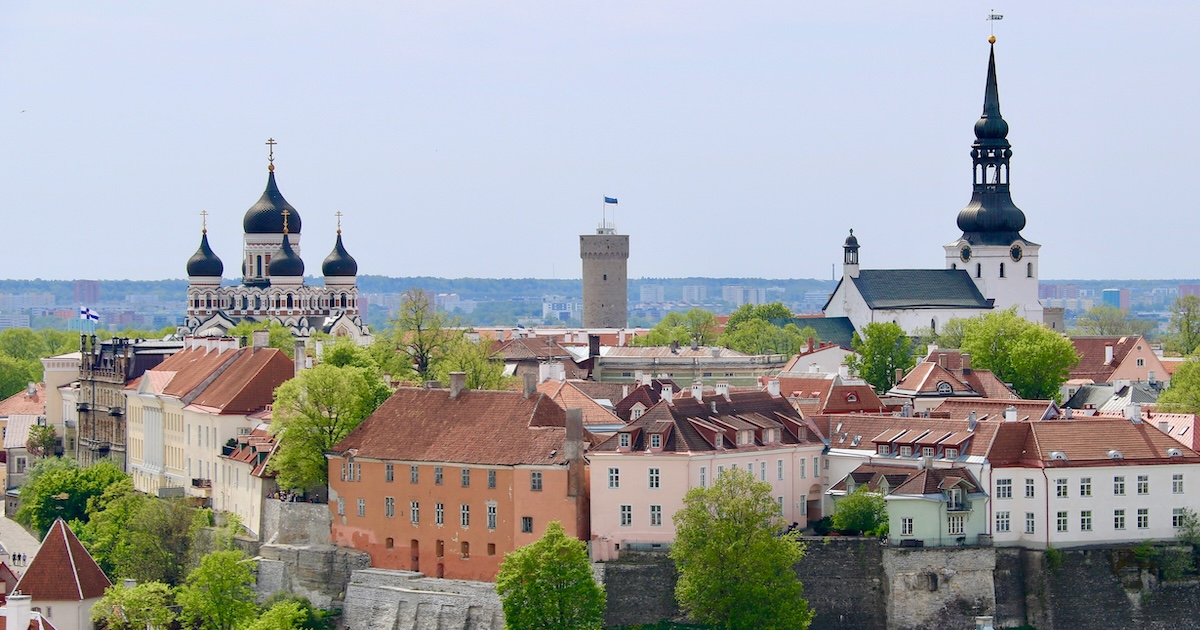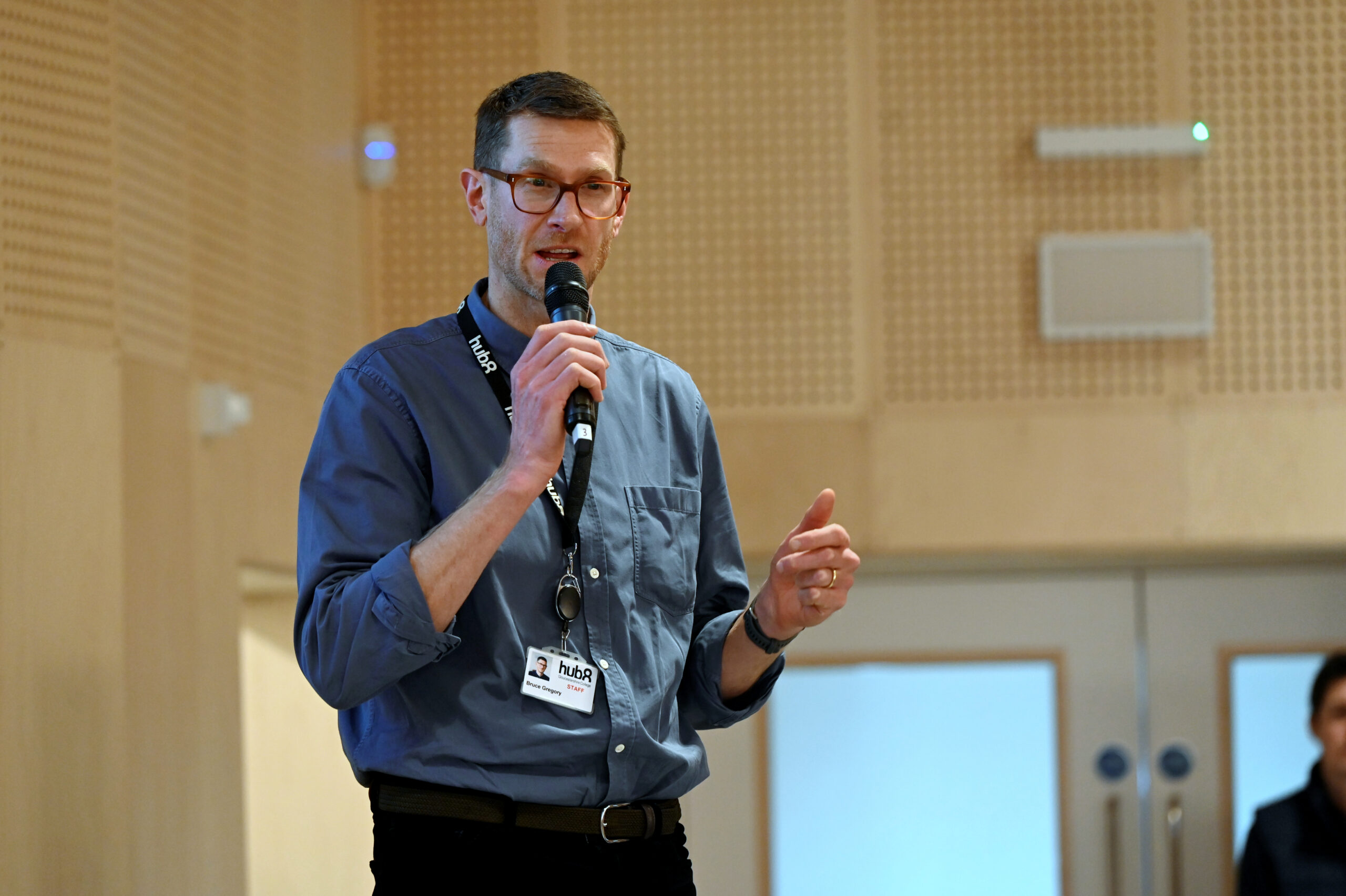Plexal’s Defence Lead, Hamza Huda, has just returned from Estonia, visiting Tallinn as a guest of the UK’s Estonian Embassy. He engaged in various activities reinforcing the UK and Estonia as national security allies, connecting with Export Advisor for United Kingdom and Enterprise Estonia, Andreas Heiki Pant, as well as Eva-Kristiina Ponomarjov, Director General at Enterprise Estonia.
Smart North Summit was the trip’s centrepiece, as the growth-focused global trade event explored industry trends with leaders from Europe, the US, the Middle East, Africa and Asia. Here, Hamza discussed the UK as the global defence hub, specifically answering the question: what does this mean for Estonian companies?
“Strategically, Estonia is key to the British military,” Hamza detailed. “It’s currently our largest continuous overseas personnel deployment and a key part of the enhanced forward presence – just one aspect of the UK’s varied NATO support.”
Elaborating on the business opportunity, he continued: “There’s a wealth of SMEs in the UK defence sector that can deliver significant security benefits to NATO nations. Equally, I’m encouraged to hear Estonian defence enterprises are keen to grow a presence in Britain.”

This aligns with the Estonian government’s plan to increase defence spending to at least 5% of GDP by 2026, up from 3% in 2025, to reinforce national security against threats from hostile actors. “…our defence cooperation with the United Kingdom is deepening year by year and together we are developing a stronger defence posture both in Estonia and more broadly within NATO,” said Estonian Minister of Defence Hanno Pevkur.
“We’ve seen how international partners from the private and public sectors can complement one another in defence,” Hamza said. “Just look at Estonia’s Frankenburg Technologies, which manufactures low-cost air defence missiles, revealing plans to open a London office with the intention to hire upwards of 50 staff earlier this year.”
“I had the pleasure of connecting with Tuuli Vors, EU Programme Manager at Frankenburg Technologies, while in Estonia and learnt more about their aspirations to collaborate in the UK.”
Commenting on the pledge from Frankenburg Technologies at the time, Prime Minister Keir Starmer declared: “Estonia is an incubator of innovation, while the UK is a launchpad for global growth and I believe closer collaboration between our countries will deliver for hardworking British people for years to come.”
Elsewhere a fellow Baltic business from neighbouring Lithuania, Aktyvus Photonics, is developing lasers for use in extreme environments. It was selected for Ministry of Defence initiative Commercial X, which acquires innovative military capability to increase value and advantages to defence.
“While in Estonia, I also attended the Supply, Security & Defence Expo – designed for innovators and procurement managers of the Baltic Sea,” Hamza continued. “In addition to connecting with three counter-UAS companies Plexal has discovered on behalf of clients through market analysis, I had the privilege to receive equipment overviews from engineers and see Estonia’s Defence Minister, Hanno Pevkur, speak. I also met with Estonia tech giants, energy storage company Skeleton Technologies and digital transformation business Nortal, getting first-hand understanding of their ambitions.
Hamza concluded: “Estonia is fast becoming a hotbed for emerging European defence technology, as seen with the country’s national intention to enhance defence spending. Couple this with the UK’s promise of increasing the defence budget by £2.2bn in 2025-26, including investment in innovation and novel technologies, there’s a powerful opportunity for us to collaborate on offerings to supercharge our defensive capabilities – and SMEs must be part of this movement.
“More broadly, the European Union’s ReArm Europe Plan, which looks to enhance European defence capabilities, shows great promise to defend against threats from adversaries by ‘stimulating innovation’ through better collaboration and integration of technologies such as AI and quantum. Security Action for Europe (SAFE), meanwhile, is the first pillar of ReArm and will act as a financial process through which member states can invest in defence and access state-of-the-art technologies with trusted partners. This combined is where startups can play an important role in shaping the future of defence tech.
“With the Strategic Defence Review expected in the next fortnight, I’m eager to see what the Ministry of Defence will reveal and I know my fellow members on the techUK Defence Board are enthusiastic about the launch too.”


